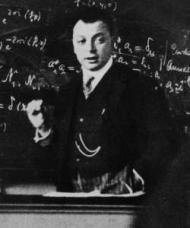"The Great Moon Hoax" refers to a series of six articles that were published in The Sun, a New York newspaper, beginning on August 25, 1835, about the supposed discovery of life and even civilization on the Moon. The discoveries were falsely attributed to Sir John Herschel, perhaps the best-known astronomer of his time.
The story was advertised on August 21, 1835, as an upcoming feature allegedly reprinted from The Edinburgh Courant. The first in a series of six was published four days later on August 25.
Reaction and effect
According to legend, The Sun's circulation increased dramatically because of the hoax and remained permanently greater than before, thereby establishing The Sun as a successful paper. However, the degree to which the hoax increased the paper's circulation has certainly been exaggerated in popular accounts of the event. It was not discovered to be a hoax for several weeks after its publication and, even then, the newspaper did not issue a retraction.
Herschel was initially amused by the hoax, noting that his own real observations could never be as exciting. He became annoyed later when he had to answer questions from people who believed the hoax was serious.
The story may also have inspired Edgar Allan Poe to write and publish "The Balloon-Hoax" in the same newspaper on April 13, 1844.
Poe had published his own Moon hoax in late June 1835, two months before the similar Locke Moon hoax, in the Southern Literary Messenger entitled "Hans Phaall – A Tale," later republished as "The Unparalleled Adventure of One Hans Pfaall." The story was reprinted in the New York Transcript on September 2–5, 1835, under the headline "Lunar Discoveries, Extraordinary Aerial Voyage by Baron Hans Pfaall." The story is regarded as one of the first science fiction stories. Poe described a voyage to the Moon in a hot-air balloon, using a factually plausible scenario: Pfaall lives for five years on the Moon with lunarians and sends back a lunarian to earth. The Poe Moon hoax was less successful because of the satiric and comical tone of the account. Locke was able to upstage Poe and to steal his thunder. In 1846, Poe would write a biographical sketch of Locke as part of his series "The Literati of New York City" which appeared in Godey's Lady's Book.
Nate DiMeo's historical podcast The Memory Palace dedicated an episode to the Great Moon Hoax entitled "The Moon in the Sun."


























